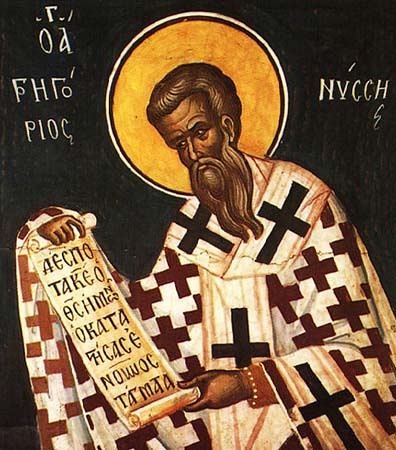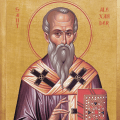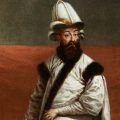Gregory of Nyssa (335-394 CE) was a prominent Christian theologian and bishop of the fourth century, known for his significant contributions to Christian theology and philosophy. He was born into a family of saints, as his siblings Macrina the Younger and Basil the Great are also recognized as saints in the Christian tradition.
Gregory received an excellent education in philosophy, rhetoric, and theology. He was known for his intellectual brilliance and eloquence in preaching, and his works reflect his knowledge of classical literature and philosophy. He was also deeply influenced by the teachings of Origen, one of the most significant early Christian thinkers.
Gregory was appointed bishop of Nyssa, a small town in modern-day Turkey, where he served for more than twenty years. During his episcopacy, he was involved in theological debates, especially on the nature of the Trinity and the person of Christ, which were crucial issues in the early Christian Church.
Gregory’s theology emphasized the unity of the Trinity, where the Father, Son, and Holy Spirit are one substance or essence, yet distinct in their persons. He also stressed the importance of the Incarnation, where God became human in the person of Jesus Christ, and the role of the Holy Spirit in the sanctification of believers.
One of his most significant works is the “Life of Moses,” a spiritual allegory that explores the human journey towards union with God. In this work, Gregory emphasizes the importance of spiritual purification, detachment from material possessions, and contemplation of God as the path to spiritual perfection.
Gregory’s writings also had a significant influence on the development of Christian asceticism, where believers seek to discipline their bodies and souls to attain spiritual growth. He wrote extensively on the nature of the human person, emphasizing the inherent goodness of human nature, and the importance of free will in the process of salvation.
Gregory’s theological and philosophical contributions have had a lasting impact on Christian thought, and he is recognized as one of the Cappadocian Fathers, along with his brother Basil the Great and his friend Gregory of Nazianzus. His works have been influential in shaping the Christian understanding of the Trinity, the Incarnation, and the human person.




